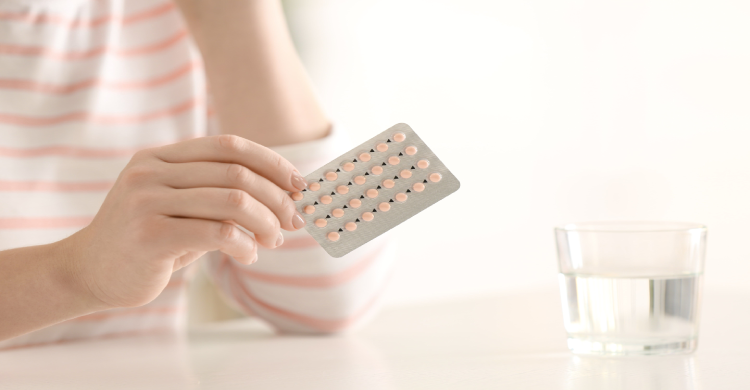Contraception
What is Contraception?
The use of drugs, Contraceptive devices, or surgical methods to prevent conception is referred to as birth control or contraception. There are several varieties. Some can be reversed, while others are irreversible. Some varieties can also aid in the prevention of STDs (STDs). At each given stage in their lives, women, men, or couples must take a number of factors into account while selecting the best method of contraception. These components include acceptability, safety, efficacy, and availability. An fundamental guiding concept is the voluntary informed selection of contraceptive techniques, and contraceptive counselling, when appropriate, may play a significant role in the effective use of contraceptive methods.
What are the different types of Contraception ?
There are many types of Contraceptive Methods:

1. Barrier Methods
- Male Condom: It is a very thin covering placed over the penis to collect sperm and stop it from reaching the woman's body. Polyurethane and latex condoms can aid in the prevention of STDs.
- Female Condom: It is a thin, adaptable plastic bag. Before sexual contact, a portion of the condom is put into the vagina to stop sperm from entering the uterus. The uterus, often known as the womb, is where the unborn child develops throughout pregnancy. Condoms for women can aid in the prevention of STDs.
- Spermicide: It is a chemical capable of sperm cell eradication. It is available as a film, foam, jelly, cream, or suppository. It is inserted into the vagina close to the uterus. Spermicide can be used on its own or in combination with a cervical cap or diaphragm.
- Cervical cup and Diaphragm: They are cervix-covering cups that are inserted within the vagina. You might combine them with spermicide. They vary in various sizes.
- Sponge: It is a little sponge that is used to cover the cervix in the vagina (the opening of the uterus). In order to destroy sperm, the sponge also contains spermicide.
2. Hormonal methods
- Contraceptive Pills: These pills are taken by women. They might either simply include progestin or oestrogen plus progestin.
- Contraceptive Patch: It is a weekly patch that a lady applies on her skin. Hormones required to stop the conception are released into the bloodstream via the patch.
- Implant: It is a single, thin rod that a doctor puts beneath a woman's upper arm skin. The implant has a four-year lifespan.
- Injectable birth control: It is a hormone injection a woman receives every three months.
- Vaginal ring: It is a slim, adaptable ring. The woman places the ring within her vagina, where it distributes hormones continuously for three weeks. It is used for four weeks. A fresh ring is inserted after the fourth week.
3. Intrauterine conception
- Contraceptive pills: These pills are taken by women. They might either simply include progestin or oestrogen plus progestin.
- Intrauterine system (LNG IUD): Like the Copper T IUD, the LNG IUD is a tiny T-shaped contraption. A doctor inserts it into the uterus. To prevent pregnancy, it produces a tiny quantity of progestin each day. Depending on the technology, the LNG IUD may remain in your uterus for up to 3 to 6 years.
4. Sterilization
- Tubectomy: It is a procedure to stop a lady from becoming pregnant. A tubectomy involves cutting a tiny hole in the abdominal or vaginal canal and binding a small section of the oviducts together.
- Vasectomy: It is a procedure that stops a man from becoming pregnant. During a vasectomy, a little part of the vas deferens is cut and tied off using tiny scrotal incisions.
What is emergency Contraception ?
A normal birth control technique is NOT emergency contraception. If no birth control was used during sex or if the birth control technique failed, such as a condom breaking, emergency contraception can be utilised. Some of the emergency contraceptives are:
- Within 120 hours following unprotected sexual activity, a doctor implants a copper IUD, a tiny, T-shaped device.
- The lady should take emergency contraceptive pills (ECPs), which are hormonal tablets, as soon as possible following unprotected sexual activity.
Consulting hospital
Women's Care Clinic
- C/O Dr. Sonal Bhangale, SHOP NO 512, OPD 209, plot no 47, D Mart Rd, Sector 15, Kharghar, Navi Mumbai, Maharashtra 410210
Alpha One Hospital
- Alphaone Hospital, Kharghar 410210.
